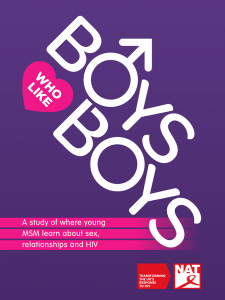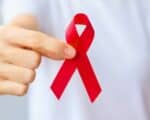Selon un sondage intitulé « Boys who like Boys » et mené par l’association National Aids Trust (NAT) sur 1000 jeunes hommes homosexuels et bisexuels âgés entre 14 et 19 ans, il apparaît que les adolescents britanniques manquent cruellement d’informations sur le sida. Au point qu’une part considérable ignore presque tout du virus et de sa transmission
En effet, selon les résultats de l’étude, plus d’un quart des sondés (27%) n’ont pas été en mesure d’expliquer avec précision comment se transmet le VIH.
29 % pensent même que le virus est transmissible à travers un baiser, ou au contact d’une salive contaminée. Et près des deux tiers ignorent parfaitement qu’un test de dépistage annuel est recommandé pour les hommes qui ont des relations sexuelles avec d’autres hommes.
 Du coup, il est moins surprenant d’apprendre que 61 % les personnes interrogées ne sont pas au courant qu’après un rapport sexuel à risque, il est possible de suivre un traitement post-exposition par trithérapie, afin de prévenir les infections par le VIH dans les 72 heures.
Du coup, il est moins surprenant d’apprendre que 61 % les personnes interrogées ne sont pas au courant qu’après un rapport sexuel à risque, il est possible de suivre un traitement post-exposition par trithérapie, afin de prévenir les infections par le VIH dans les 72 heures.
Loin de pallier ce phénomène, l’école britannique semble inapte à renseigner ces sujets à risques. Les cours d’éducation sexuelle y sont bel et bien dispensés, sous l’intitulé « Sex and Relationships Education », mais visiblement, ils s’adressent avant tout aux jeunes hétérosexuels. Ainsi, les trois quarts des sondés expliquent ne jamais avoir eu d’informations sur les relations entre personnes de même sexe au cours de ces enseignements.
Visiblement, le sida n’occupe pas une place centrale dans ces modules pédagogiques. Selon les deux tiers des sondés, la question des tests de dépistage n’y est pas abordée. Un tiers des personnes interrogées affirment n’avoir reçu aucune information sur les modes de transmission du VIH et sur les moyens de s’en protéger. Dans un pays où le nombre de jeunes (15-24 ans) diagnostiqués a doublé depuis dix ans, ces chiffres laissent perplexe.
Discrimination
En fait, l’école britannique apparaît surtout comme le haut lieu de la discrimination envers les jeunes homosexuels. Plus de la moitié des sondés (55 %) ont expérimenté une forme de harcèlement liée à leur orientation sexuelle. Et, sans surprise, c’est sur les bancs du collège et du lycée que les attaques se répètent le plus souvent.
Ainsi, parmi les personnes harcelées, 99 % l’ont été par d’autres élèves et plus du tiers (39 %) ont été persécutées d’une manière ou d’une autre par des enseignants, ou des adultes présents à l’école.
Résultat : la très grande majorité (75 %) des participants au sondage pensent qu’il n’est pas illégal au Royaume-Uni de discriminer une personne en fonction de son orientation sexuelle. Ce qui, au fond, est assez logique…
« Ces chiffres sont très préoccupants, souligne Deborah Gold, directeur général du NAT, au journal britannique The Independent. Le fait que des professeurs ou d’autres adultes présents à l’école, puissent être responsables de harcèlement et de discrimination est absolument inacceptable. Nous voulons en savoir davantage sur ce point ».
[spacer]
>> Gay pupils across the country are being subjected to homophobic bullying at the hands of their teachers, according to research published today.
avec pourquoidocteur.fr


















